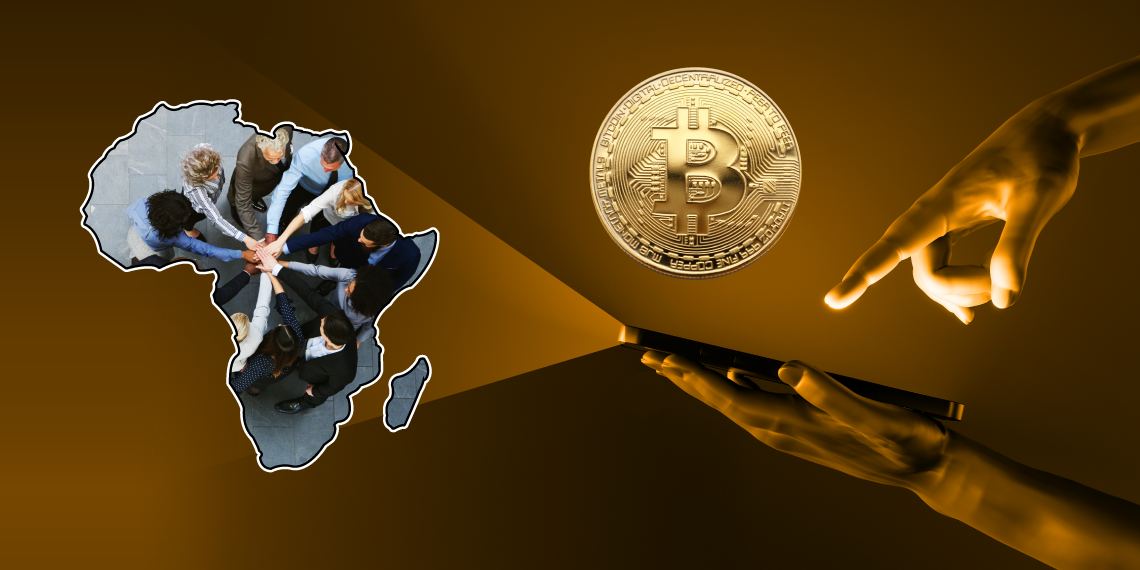Home » News » Industry News
Cryptocurrency and blockchain have a lot of use cases that can be used to help Africa experience faster economic growth. The use cases are nearly limitless between banking, wallets, loans, and the internet. Most notably, those use cases can help provide connectivity throughout the continent and enable banking access to millions of unbanked individuals.
3air, a blockchain-based connectivity company, is working to provide high-speed broadband connectivity and access to decentralized banking throughout African nations.
Through proven wireless technology, blockchain services, and cryptocurrency, 3air aims to connect Sub-Saharan Africa to the global economy. There are many issues facing Sub-Saharan Africa regarding economics and connectivity. The region has an internet penetration rate of just 35%, which is significantly lower than the rest of the world.
The numbers are similarly unfortunate for banking services. In 2022, 57% of Africans were unbanked; no checking accounts, no savings accounts, no banking services of any form. Crypto can fix the banking issue in Sub-Saharan Africa by allowing the unbanked to utilize peer-to-peer transactions without needing a centralized intermediary.
Digital-only banks are increasing in prevalence around the globe but are often centralized, which can provide customer issues and limitations when dealing with fiat currency. Banks often have long identification processes and fees in place, require minimum deposits and have problems with accessibility, security, and financial inclusion. With there being a huge number of bankless individuals in Sub-Saharan Africa, inaccessibility is a huge barrier to adoption.
Decentralization through cryptocurrencies prevents many of these issues, lowers fees, and prevents security issues from happening in the first place. Due to the nature of crypto, the entry barrier is low and less formalized, thus more inclusive. There can be no exclusion when the features are all online as long as access to the internet is widely available.
In Web3, banking accessibility can be solved with crypto by decentralizing the access to financial and identity services. For example, a company called 3air recently introduced NFT-based internet subscriptions. Users are connected to the internet through high-speed broadband connections by purchasing an NFT that contains rights to use telecom services.
Using NFTs as a subscription model provides significant benefits over standard telecom contracts. You own the NFT, and that NFT can be transferred freely between you and others.
Suppose you no longer wish to utilize your subscription service. In that case, you can resell your token on a decentralized market or simply exchange it for another user. Once you move out of your apartment, for example, you could transfer the internet service to the said apartment to the new residents without spending hours on the phone with customer service. This method will save you both the hassle of canceling and rehiring internet services.
Blockchain technology can also be used for health information storage for one’s personal uses while being as or more secure as a centralized database. Storing information on a blockchain, locked behind an NFT for access, allows users to quickly pull any medical information necessary from anywhere they have internet connectivity. NFTs are encrypted using hashes, which often gives more security than you would find on a standard storage server.
On the hospital’s side, these NFTs allow interoperability and ease of using data without worrying about storing it. Hospitals are often locked into contracts to use specific, varying software, which can be expensive, tedious, and may not even function with each other, requiring increasing amounts of manual labor to input information into a new system.
Organizational transparency is another issue that is increasingly important across the entire globe. Enter DAOs, a blockchain-based code base providing governance for businesses or a non-profit. DAOs are a strict set of rules that cannot be manipulated and prevent corruption, forcing those who use them to be completely transparent with how they manage their funds. Take the case of nonprofits, where this forced transparency provides an additional layer of trust, allowing organizations to function without interference or corruption.
These are just a few of the many ways that crypto can influence the global economy. However, they all benefit Africa exceptionally well by connecting users globally like never before: by providing banking for the bankless, decentralizing hospital records and health-related documents, and providing nonprofits with a way to better assist those in need in a more trustworthy manner.
Author
Administraroot

